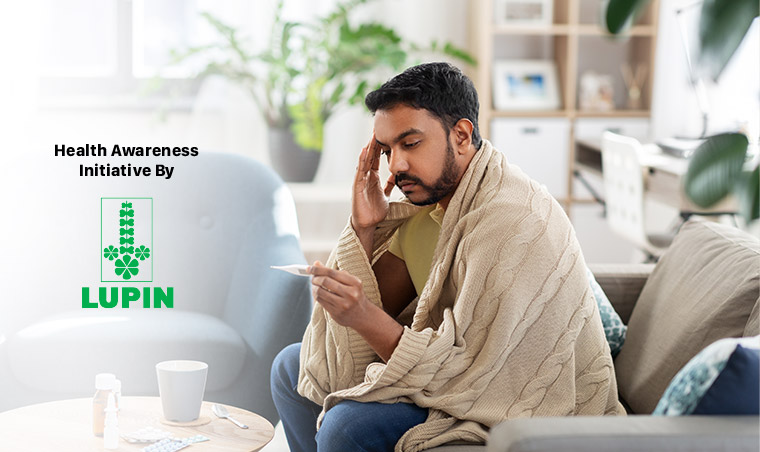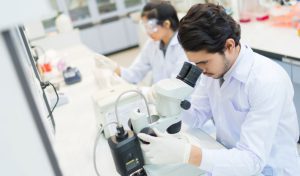Can You Catch COVID-19 Twice?
By Dr. Nikita Toshi +2 more

Get,

to manage your symptom
Get your,


4 Cr+ families
benefitted

OTP sent to 9988776655



You’ve successfully subscribed to receive
doctor-approved tips on
Whatsapp

Get ready to feel your best.

Hi There,



Register to Avail the Offer
Send OTPBy continuing, you agree with our Privacy Policy and Terms and Conditions

Hi There,

Trusted by 4 crore+ families

OTP sent to 9988776655



You have unlocked 25% off on medicines




Code: NU25

By Dr. Nikita Toshi +2 more
Countries all over the world have been fighting against the novel coronavirus using preventive measures such as social distancing and lockdowns. After India being in lockdown for almost half a year, certain relaxations have gradually been implemented to resume economic activities.

Amidst the rising number of new cases daily, the first documented case of reinfection with Covid-19 was reported in a 33-year-old man in Hong Kong almost 4 ½ months after he recovered from his first infection. Closer to home, recently there have been reports of reinfection cases in Bangalore, Delhi and Mumbai, especially amongst healthcare workers. Researchers in India have also reported few cases with asymptomatic reinfection of Covid-19.
Table of Contents
In simple words, reinfection means that a person was infected once, cleared the infection and then the person was infected again.
Initial evidence suggests that normally, in case of an infection, the COVID Immunoglobulin G (IgG) antibody is tested positive after 2-3 weeks of the infection. However, in certain cases, the antibody tests negative, which means that the person does not develop immunity after infection. Another possibility could be that the antibodies are short-lived and disappear quickly, thereby making the patient susceptible to reinfection. Thus, reinfection cases mean that the antibodies may not be produced by every patient or if they do develop, they may not last long enough, and therefore, allowing the virus to enter the body and cause the disease again.

The World Health Organisation (WHO) has stated that there is currently no evidence that people, who have recovered from COVID-19 and have antibodies, are protected from a second infection.
Though the patient from Hong Kong experienced a cough, sore throat, fever and headache during his first infection, he was asymptomatic during his second infection. On the contrary, a 25-year-old man in the US developed breathing difficulties and pneumonia after getting re-infected with COVID-19, despite having only mild symptoms during his first infection.
Although there could be a chance that the virus was quite low enough to go undetected and appear negative on a test, only to increase and be picked up in the next test, the question arises as to whether the same virus has resurfaced again or is the current infection caused due to another viral event.
Determining reinfection is quite a challenging process. Genetic material gathered from the first and second swabs of the patient must be analyzed and sequenced by using genetic engineering. If there are differences that show up during sequencing, it means that reinfection has occurred. If the sequences match, then it means that there could be a relapse.
As of now, health officials in India are of the opinion that reinfection with COVID-19 is very rare. Observations till date have shown that only mild infections have occurred and therefore, this issue is not of serious concern now.
As per early-stage reports from vaccine clinical trials being conducted worldwide, the vaccine produces less immunity than an infection. There is still a lot of testing and data that is required in order to ascertain the level of immunity that the vaccine would provide. However, we may require booster doses in order to maintain immunity and avoid infection.

Read more about: Difference between Covaxin vs Covishield Vaccine
Herd immunity is based on the principle that a disease can be eradicated if most of the population is immune to it. With cases of reinfection being reported and confirmed, researchers are increasingly sceptical about achieving herd immunity since it may be impossible to achieve. Once again, more research is needed in order to confirm this fact.
Recovery from COVID-19 does not mean that you are immune to the disease. You should avoid getting complacent and continue maintaining hand hygiene, wearing masks and ensuring social distancing even after recovery.
Since COVID-19 is a relatively new disease, there is not much data available to understand the kind of long-term immunity that patients develop after they have recovered from the infection.
With respect to the novel coronavirus and COVID-19, a lot is still left to be learned. Research is still underway in order to understand various aspects of the disease and its threat of reinfection as well as the vaccine and immunity. In all cases, health officials have advised that the chances of reinfection are rare and not a cause of serious concern.
Is it right to take care of your health first? Yes! It is.

Disclaimer: The information provided here is for educational/awareness purposes only and is not intended to be a substitute for medical treatment by a healthcare professional and should not be relied upon to diagnose or treat any medical condition. The reader should consult a registered medical practitioner to determine the appropriateness of the information and before consuming any medication. PharmEasy does not provide any guarantee or warranty (express or implied) regarding the accuracy, adequacy, completeness, legality, reliability or usefulness of the information; and disclaims any liability arising thereof.
Links and product recommendations in the information provided here are advertisements of third-party products available on the website. PharmEasy does not make any representation on the accuracy or suitability of such products/services. Advertisements do not influence the editorial decisions or content. The information in this blog is subject to change without notice. The authors and administrators reserve the right to modify, add, or remove content without notification. It is your responsibility to review this disclaimer regularly for any changes.

Leave your comment...
Comments